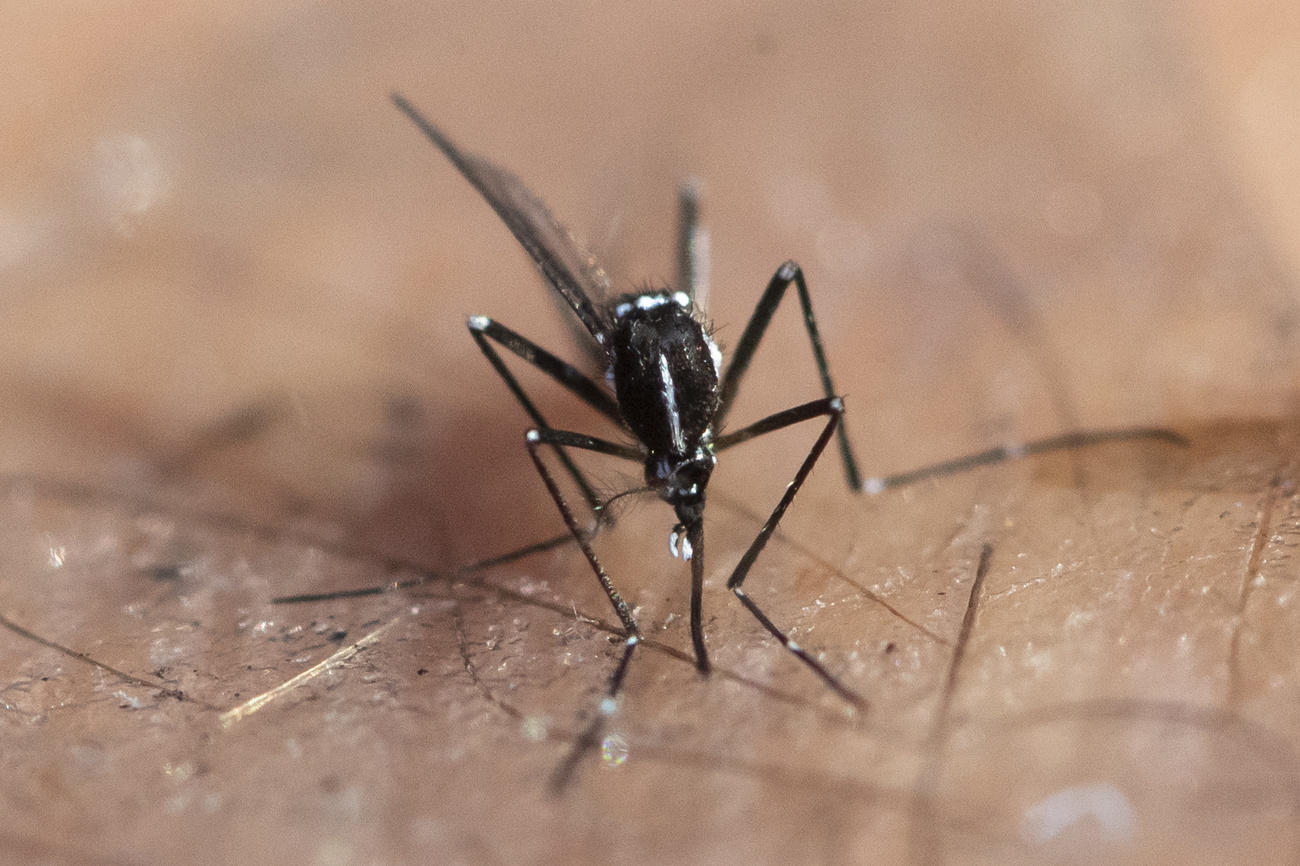
Tiger mosquito confirmed in Geneva

Asian tiger mosquitoes, which can carry harmful diseases, have reached Geneva, authorities say.
Scientists’ confirmation of its presence took place “this month of September,” a statement from the canton of Geneva said on Friday.External link
It comes after recent sightings of the insect in Schaffhausen and Zurich.
“The tiger mosquito is a particularly undesirable invasive species because it also bites during the day and causes a stronger reaction. It is also a potential vector of tropical diseases,” the statement continued.
However, it pointed out that because these diseases – such as Zika, dengue fever or Chikungunya – were not habitual to the Geneva region, being bitten by a tiger mosquito “carries no special health risk”.
Plan
The authorities have activated a tiger mosquito plan. This involves increasing checks on potential breeding sites, as the mosquito likes inhabited spaces, and destroying any colonies. They are also calling on the public to look out for the insect and photograph or send in any suspected specimens.
The tiger mosquito was first seen in Italian-speaking Ticino in the south of Switzerland in 2003 and has also been noted in Basel and Graubünden.
Originally from southeast Asia, it has been spreading across Europe, including in France, which borders Geneva. The Geneva authorities said that they had expected the mosquito to “appear sooner or later” in the canton. Climate change and international travel have contributed to the spread of the insect, they said.

More
Asian tiger mosquitoes descend on Zurich

In compliance with the JTI standards
More: SWI swissinfo.ch certified by the Journalism Trust Initiative





























You can find an overview of ongoing debates with our journalists here . Please join us!
If you want to start a conversation about a topic raised in this article or want to report factual errors, email us at english@swissinfo.ch.